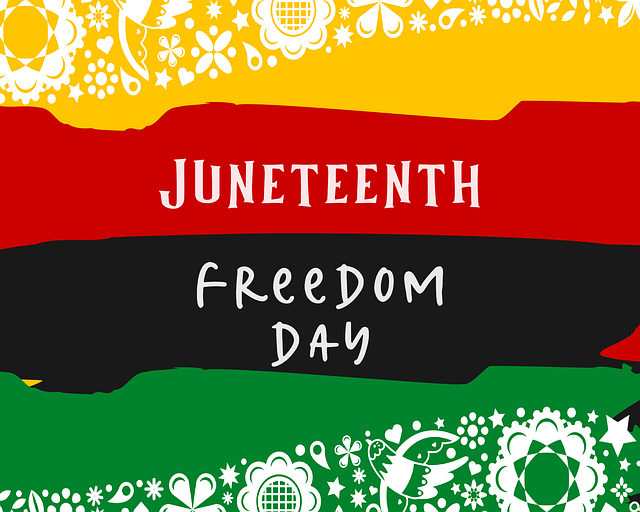
Photo Credit: Pixabay.com
What it is:
Juneteenth, officially recognized as Juneteenth National Independence Day, became a federal U.S. holiday on June 17, 2021. It commemorates that on June 19, 1865, Union General Gordon Granger arrived in Galveston, Texas, and issued General Order No. 3, which proclaimed the freedom of all enslaved people in Texas. This announcement came more than two years after the Emancipation Proclamation was issued by President Abraham Lincoln on January 1, 1863
Why it’s important:
The observance of Juneteenth sheds light on the fact that even after the Emancipation Proclamation and the ratification of the 13th Amendment to the U.S. Constitution in December 1865, which legally bans slavery and involuntary servitude "except as a punishment for crime whereof the party shall have been duly convicted" many people of African descent remained in bondage.
Recognizing Juneteenth as National Independence Day serves as a reminder that not all people where free upon the passage of the Declaration of Independence and aligns with other national holidays that commemorate important moments in American history, such as July 4th. Recognizing and commemorating Juneteenth adds a significant layer of historical understanding and context to the overall narrative of emancipation and the abolition of slavery in the United States. It’s worth noting that state recognition of federal holidays is not mandatory, and there can be variations in holiday observance among states.
What we can do:
Research: Familiarize yourself with the historical background and significance of Juneteenth. Seek resources authored by Americans of African Descent, such as "13th" (Netflix documentary directed by Ava DuVernay).
Educate: Organize educational sessions or create informational materials that provide historical context about Juneteenth. In addition to articles, videos etc. share stories and personal testimonies to make the information more relatable and engaging.
Dialogue: Create an inclusive space for your members and participants to ask questions, share perspectives, and engage in meaningful dialogue. Discuss the ongoing relevance of Juneteenth in the context of racial justice and explore ways to support and celebrate the holiday.
Reflect and Act: Inspire your members and participants to reflect on the lessons and values of Juneteenth and consider how they can actively contribute to promoting racial justice and equality in their personal lives and communities.
Juneteenth holds significant importance for many Black people and communities in the United States. It can be a time for reflection, celebration, and cultural pride. It provides an opportunity to honor ancestors, recognize the progress made in the fight for racial justice, and acknowledge the ongoing work needed to address systemic racism and achieve true justice.
However, it's important to note that not all Black people have the same perspectives or experiences, and opinions on the significance of Juneteenth may vary among individuals. As with any cultural or historical observance, it is essential to approach discussions and inquiries with sensitivity, respect, and a willingness to listen to the diverse voices and experiences within the Black community.


